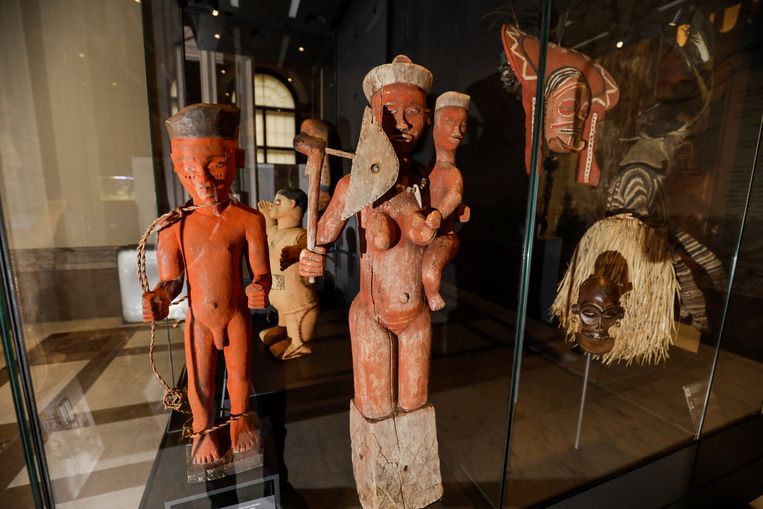The federal government has promised to return art and remains looted illegally from the Congo, which was a Belgian colony for almost 80 years in total.
Belgium is the first country to develop such a process, according to Secretary of State for Recovery Programmes, Thomas Dermine, who presented the plan at the AfricaMuseum in Tervuren.
"The time has come to return the objects that were unlawfully removed from Congo because they belong to the Congolese people," Dermine said on Tuesday.
"Cultural heritage is one of the riches exploited by the colonial powers, and taking thousands of objects from colonies deprives the citizens of the former colony of access to their own history, culture, creativity and spirituality of their ancestors," he added.
Around 1% of the almost 130,000 objects in the AfricaMuseum's collection are known to have been acquired illegally, while around 58% was legally acquired. The other 40% will be investigated and analysed to determine the exact origin.
In a press conference held today at the museum, Secretary of State @ThomasDermine presented his approach to the restitution of cultural artefacts looted from the Congo during the colonial period. Dermine: "What was acquired illegitimately does not belong to us. It must be returned." pic.twitter.com/Y2GqOAmyte
— The AfricaMuseum (@africamuseumbe) July 6, 2021
Dermine recognised that returning the objects that were taken by the Belgian State and became its property during its political ruling of the country, from 1885 to 1908 and from 1908 to 1960, has become an important topic in national and international public debate in the last years.
This framework again confronts Belgium with the abuses that took place during its colonial rule over Congo, in particular when it was Leopold II's independent state of Congo, during which he harvested riches from the exploitation of the natural resources whilst brutally exploiting the people of the area.
However, returning looted art is not an easy process, as several issues relating to the legal ownership of the objects in question and operational issues (conservation methods, transport) often arise, which "often prevented concrete progress on the symbolic front", Dermine explained.
What is this systematic approach?
A dialogue will be started with the authorities of the Democratic Republic of the Congo (DRC) to facilitate the preservation and enhancement of the material restitution of objects once they are returned.
A restitution process (returning something lost or stolen to its proper owner) will also be started for all objects for which it can be established that they have been acquired unlawfully.
These objects will have to be assigned the legal character of alienability, meaning they will no longer be in the public domain of the State, but instead in the private domain, which symbolically implies that they can legally be returned.
"This transfer of legal ownership must take place immediately, regardless of whether a claim for material restitution has been made or not. This transfer of legal ownership recognises the right of the legitimate owner - the Congolese state," Dermine explained.
"The DRC representatives should be asked what support we could provide to facilitate and accompany concrete material restitution," said Dermine.
For the objects for which it could not be established whether they were acquired illegally, provenance studies - looking at the history of ownership - will have to prove how they were originally acquired, for which a scientific committee will be set up for this purpose, bringing together scientists from both Belgium and the DRC.
This 'symbolic' approach is innovative in Europe, where most countries focus on the perspective of physical restitution, which often limits the number of objects that can be returned and results in issues occurring with regards to the conservation of objects in the countries of origin.
According to AfricaMuseum director Guido Gryseels, these provenance investigations will require an additional €2.5 million in funding,
"For research in archives and field research, we will need more money and several new scientists over the next five years, as it involves an awful lot of objects, many of which we barely have any data on at the moment," said Gryseels.
Dermine said the museum will have to rely on its own resources for this in the first phases. However he did leave the door open to release additional funds for this, if the restitution process has been finalised and Congo becomes the legal owner and can reclaim objects.

